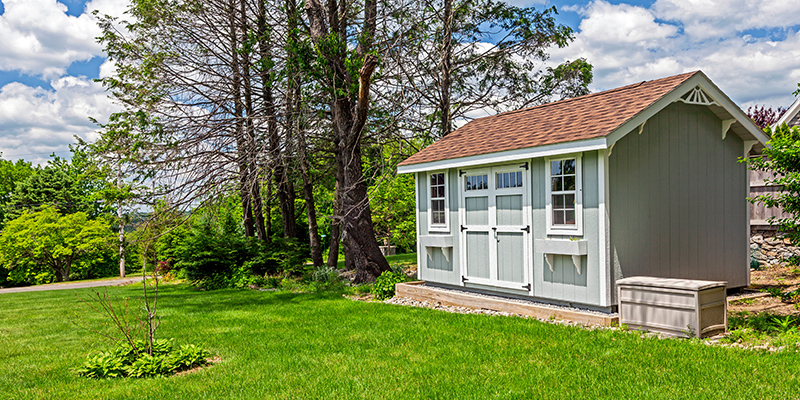Legal Obligations Of HOAs

For the 74 million people living in more than 347,000 communities governed by homeowners associations, their HOA boards may have as much or more of an impact on their daily lives than their state, county, or local governments.
Browse By Category
Sign up for Our Newsletter
For the 74 million people living in more than 347,000 communities governed by homeowners associations, their HOA boards may have as much or more of an impact on their daily lives than their state, county, or local governments.
HOAs do more than maintain common areas, such as parking lots, community pools, and sidewalks. They also establish and enforce rules designed to protect property values and maintain order within the community.
It’s probably safe to say that most community residents limit involvement in their HOAs to responding to the occasional warning about parking in the wrong place or requesting permission to hold a birthday party at the community pool.
If you are a member of an HOA board, someone thinking about running for a position on one, or simply residing in a community and want to know more about the legal obligations imposed on HOAs and their board members, then you’ve come to the right place.
What Is an HOA?
 When you purchase a home in a new subdivision or opt for a condominium or cooperative, you may discover that ownership brings with it membership in the community’s homeowners association, which is usually a nonprofit corporation. The HOA is governed by a board composed of members of the community elected by a vote of the property owners.
When you purchase a home in a new subdivision or opt for a condominium or cooperative, you may discover that ownership brings with it membership in the community’s homeowners association, which is usually a nonprofit corporation. The HOA is governed by a board composed of members of the community elected by a vote of the property owners.
An HOA board makes and enforces rules for the safety of community residents as well to ensure that owners maintain their properties according to a uniform set of standards. Some of the most common rules found in communities governed by an HOA include:
- Limits on the number of vehicles each resident may have on-premises.
- Restrictions on paint colors and changes made to building exteriors.
- Limit on the types and number of pets residents may own.
- Prohibition or restriction on renting properties within the community.
- Outdoor plantings and decorations residents may display.
An HOA oversees the maintenance of common areas, which would be those areas within the community not maintained by the individual property owners. Some HOAs contract for trash pickup within the community as well as pay the cost for road maintenance and lighting.
The funds available to an HOA come from monthly, quarterly, or annual fees paid by each of the owners of properties within the community. These fees may include common charges, HOA fees, and maintenance fees.
HOAs have the authority to enforce community rules through fines imposed on property owners who violate them. The general procedure is for the HOA board, or a management company hired by the board to oversee day-to-day operations of the HOA, to send a letter to a homeowner notifying them of a violation of the rules. If the homeowner fails to comply by removing the violation, the HOA may impose a fine.
Legal Obligations of HOAs and Their Boards
Laws in each state establish rules and procedures that HOAs and their board members must follow. Laws vary from state to state, so your best source for advice about the law governing HOAs in your state is a consultation with a real estate law attorney practicing where your community is located.
Even though those elected to serve on an HOA board typically do so as volunteers who do not receive compensation for their efforts, they can be held responsible for violating their legal duties as fiduciaries. A fiduciary holds a position of trust, so as a member of an HOA board, your position as a fiduciary imposes the following legal obligations:
- Duty of care: The duty of care means that you must carry out your responsibilities in a prudent and reasonable manner. This means being fully aware of the rules of the HOA and the facts of a given situation before making decisions and refraining from actions that may be arbitrary or capricious.
- Duty of loyalty: Taking action or making a decision that benefits yourself violates your duty to put your own interests aside and act only in the best interest of the HOA. If a board member becomes aware of a conflict of interest, that person has a duty to refrain from voting or otherwise acting on the matter. For example, you should not vote on or influence the decision to hire a relative to do work on behalf of the HOA.
- Acting only within the scope of your authority: The bylaws of an HOA establish the authority of its board. Members of the board must confine their decisions and actions they take to the authority granted by the bylaws and by state law. For example, if the bylaws require a vote of the property owners to change or implement a rule on a specific topic, it would be inappropriate for the HOA board to attempt to bypass the homeowners.
Holding annual meetings that are open to the general membership, maintaining accurate financial records of collections and expenditures by the association, and other legal obligations may have to be met by an HOA depending upon its bylaws or the laws of the state in which it operates.
What Happens When HOAs Violate Their Legal Obligations?
 HOA boards that neglect their legal duties or violate laws or the rules established by their bylaws may be subject to legal action either by members of the association or by state or local government agencies. For example, homeowners who believe enforcement action by an HOA discriminates against may file a lawsuit asking a judge to stop or enjoin the enforcement action.
HOA boards that neglect their legal duties or violate laws or the rules established by their bylaws may be subject to legal action either by members of the association or by state or local government agencies. For example, homeowners who believe enforcement action by an HOA discriminates against may file a lawsuit asking a judge to stop or enjoin the enforcement action.
Individual members of an HOA board may be subject to legal action for violating their fiduciary duties. For example, a member of an HOA board who takes money from the association can be subject to a civil lawsuit on behalf of the association to recover the funds. The board member could face prosecution if the conduct violates state criminal laws.
The best way for HOAs and the members of their governing boards to avoid lawsuits or other types of enforcement action against them is by understanding their legal obligations and avoiding actions or conduct that may violate them. Consulting with an experienced real estate law attorney can offer valuable guidance to avoid activities that could result in adverse legal action.
RELATED ARTICLES:
Trending Now
Related Article
Sign up for Our Monthly Newsletter
Sign up below for monthly updates on all HOA Resource
















